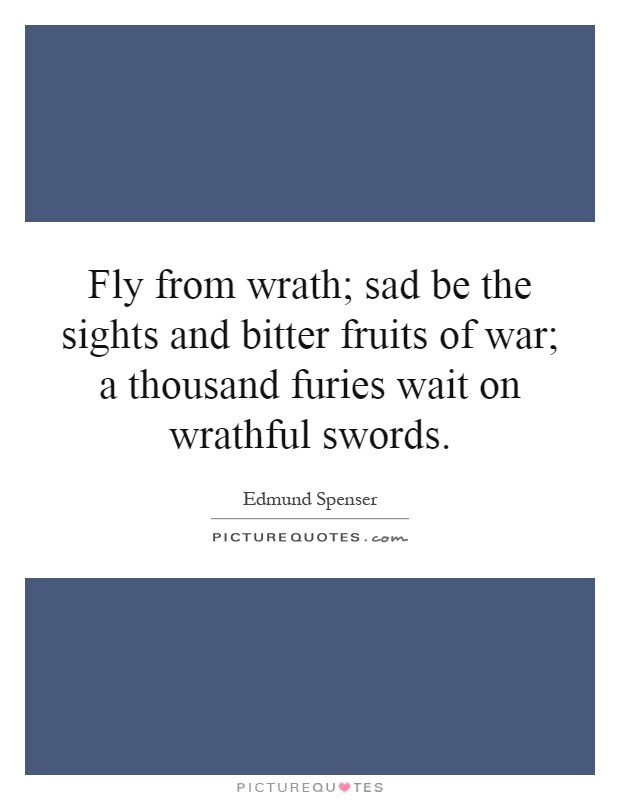Fly from wrath; sad be the sights and bitter fruits of war; a thousand furies wait on wrathful swords

Fly from wrath; sad be the sights and bitter fruits of war; a thousand furies wait on wrathful swords
In the context of Edmund Spenser's works, the quote "Fly from wrath; sad be the sights and bitter fruits of war; a thousand furies wait on wrathful swords" holds significant meaning. Spenser, a renowned English poet of the Elizabethan era, is best known for his epic poem "The Faerie Queene," which explores themes of chivalry, virtue, and the consequences of unchecked ambition and wrath.In "The Faerie Queene," Spenser presents a vivid and complex allegorical world where characters embody virtues and vices, and where the consequences of their actions are often dire. The quote serves as a warning against the destructive power of wrath, highlighting the devastating effects of war and violence. Spenser's portrayal of wrath as a destructive force that leads to sorrow and suffering is a recurring theme throughout his works.












 Friendship Quotes
Friendship Quotes Love Quotes
Love Quotes Life Quotes
Life Quotes Funny Quotes
Funny Quotes Motivational Quotes
Motivational Quotes Inspirational Quotes
Inspirational Quotes